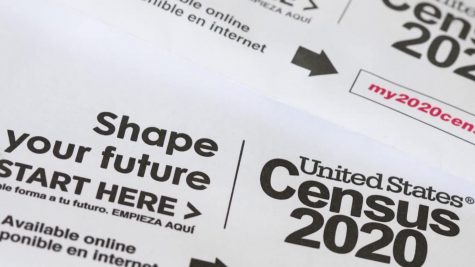US Census Impacted by COVID-19
October 23, 2020

Our everyday lives have been postponed or cancelled by the COVID-19 pandemic, which started in December, but the national census must go on.
The national census is a major milestone for the United States. The census is taken every ten years and counts everyone living in the United States and the five US territories, according to the US Census Bureau. The census helps establish federal funding for establishments like hospitals and schools. It also determines the number of seats each state has in the House of Representatives and how the districts are drawn.
One of the challenges of the census is how to promote it to every citizen. This was made even harder by the stay-at-home orders implemented in March that have recently just been lifted. According to the PBS News Hour, in-person census surveys were suspended for the majority of the year until mid August. Online census forms have been created to try and make up for lost responses.
Normally, promotional events and public advertising have been an important part of the census, and this year the government has been doing everything possible to make up for the lost announcements.
According to an article by the New York Times, many organizations had events set up for the census. Various events such as a basketball tournament in Allentown, Pennsylvania had to be cancelled. The city of Detroit cancelled almost 100 public events all promoting the census. In Chicago, kiosks for online census gathering were set up, but with stay at home orders and general wariness of COVID-19, they are of little help. This could make it harder for people to even access materials to take the census.
The cancellations have led to a lack of awareness and promotion that could greatly impact responses. The government and companies working to get a census have had to get creative to raise awareness about it. According to the US Census Bureau, organizations such as the Salvation Army and Feeding America are distributing materials along with food. A range of organizations like the Asian Pacific American Labor Alliance, the University of Maryland’s, and the network Uforia released videos and live streams encouraging viewers to take part in the census.
The biggest problem the government faces is those who do not respond. Before the pandemic, according to the New York Times, the Census Bureau was preparing to send out hundreds of thousands of people called census takers, who would look for the individuals who did not respond. They would knock on their doors and ask them the questions in person. However, this is not possible for peoples’ safety this year. Some households may not be willing to open doors to strangers at this time. Unfortunately, the census data this year may be less accurate than others because of these factors.
One of the biggest factors resulting in less accurate data just recently occurred. The Supreme Court ruled that President Trump could end the census early, according to NPR. It ended October 15th, instead of continuing through October 31st. By ending the census early, the results may be skewed because of people that did not answer in time on such short notice, most notably immigrants and people of color that are undercounted even in normal census years.






